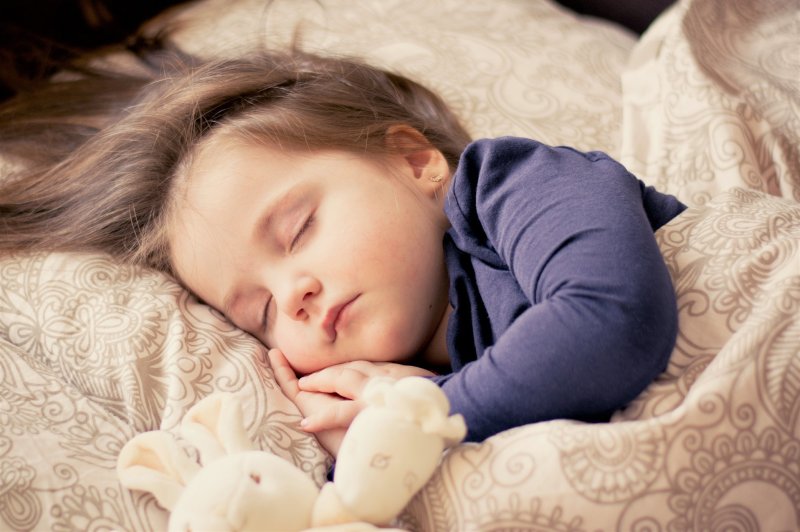Children with insomnia symptoms are at higher risk for the sleep disorder in adulthood, according to a new study. Photo by DDimitrova/
Pixabay
Feb. 17 (UPI) -- Children with insomnia are more likely than others to continue to suffer from the sleep disorder as adults, a study published Thursday by journal Pediatrics found.
Of children with insomnia symptoms, 43% continued to experience sleep problems through adolescence into adulthood, the data showed.
Although 27% of children with insomnia symptoms experienced remission by adolescence, close to 19% had a "waxing and waning" pattern, in which their problems came and went, into adulthood, the researchers said.
Among children without insomnia symptoms, 15% developed the sleep disorder during the transition to adolescence and had it into adulthood, while another 21% newly first experienced them in young adulthood, according to the researchers.
In addition, 16% of children without insomnia experienced a waxing and waning pattern of insomnia into young adulthood, they said.
"The key finding of this study is that insomnia symptoms in childhood are much more likely to persist over time than we previously believed," study co-author Julio Fernandez-Mendoza said in a press release.
"Those with insomnia symptoms and laboratory-measured short sleep duration are much more likely to evolve to develop a clinical condition in early adulthood," said Fernandez-Mendoza, associate professor of psychiatry and behavioral health at Penn State Health in Hershey, Pa.
Ip to 25% of children, 35% of adolescents and 45% of young adults have symptoms of insomnia, which causes difficulty falling and staying asleep, according to the Sleep Foundation.
Poor sleep has been linked with an increased risk for heart disease and other health problems, the foundation says.
The findings of this study are based on an analysis of 502 children who were ages 5 to 12 years in 2000, Fernandez-Mendoza and his colleagues said.
The children were assessed for insomnia roughly seven years later, when they were in their teens, and again 15 years later as young adults in their 20s, the researchers said.
Adolescents who showed signs of insomnia during sleep tests were 5.5 times more likely to see their symptoms worsen into adulthood than those who tested normally, the data showed.
Although the study did not investigate the underlying causes for children's sleep problems, most are linked with "behavioral" issues, such as when a child does not want to go to sleep or needs a parent in the room to fall asleep or resume sleep, Fernandez-Mendoza and his colleagues said.
Many of these problems can be traced to psychiatric and behavioral disorders, such as attention deficit hyperactivity disorder, autism or mood disorders, as well as medical conditions, such as headaches or gastrointestinal problems, they said.
The findings suggest that childhood insomnia symptoms require early treatment, including cognitive behavioral therapy, while adolescence is a critical time to address chronic sleep issues, according to the researchers.
"Parents and clinicians should not assume that insomnia symptoms are benign complaints that will go away with age," Fernandez-Mendoza said.
"We suspect that many children who experience insomnia symptoms that persist into adulthood will also suffer from some negative health consequences," he said.















